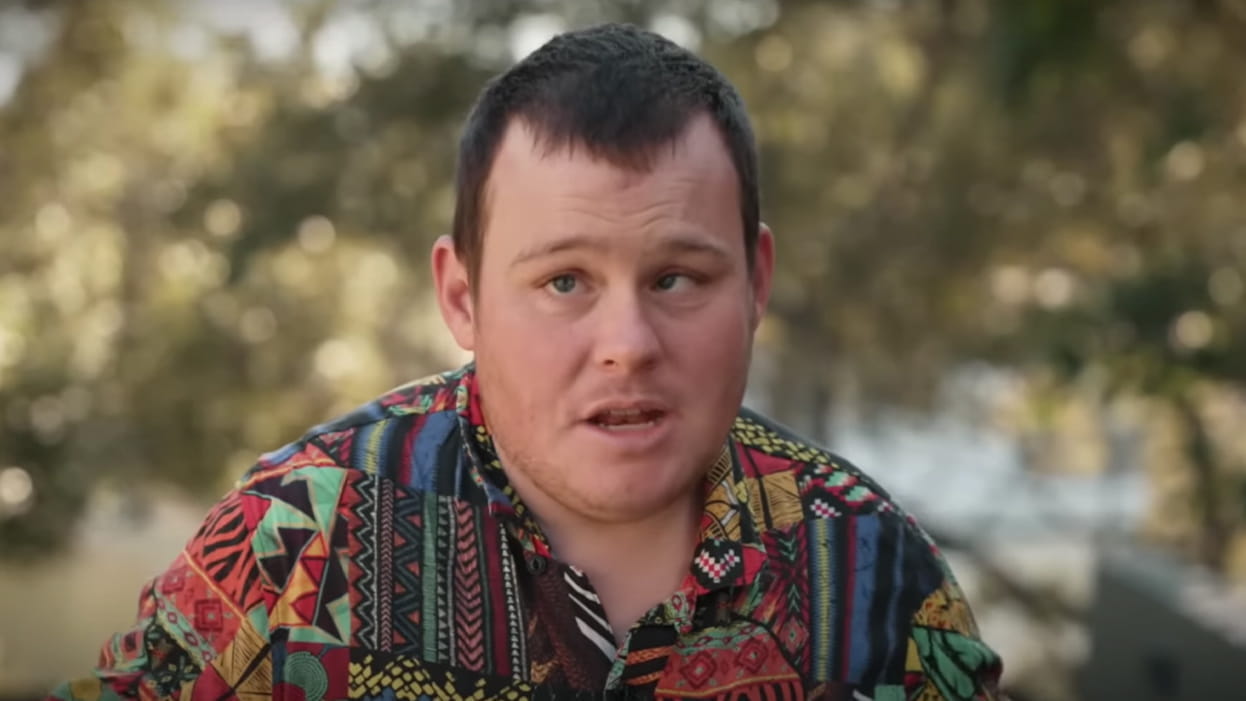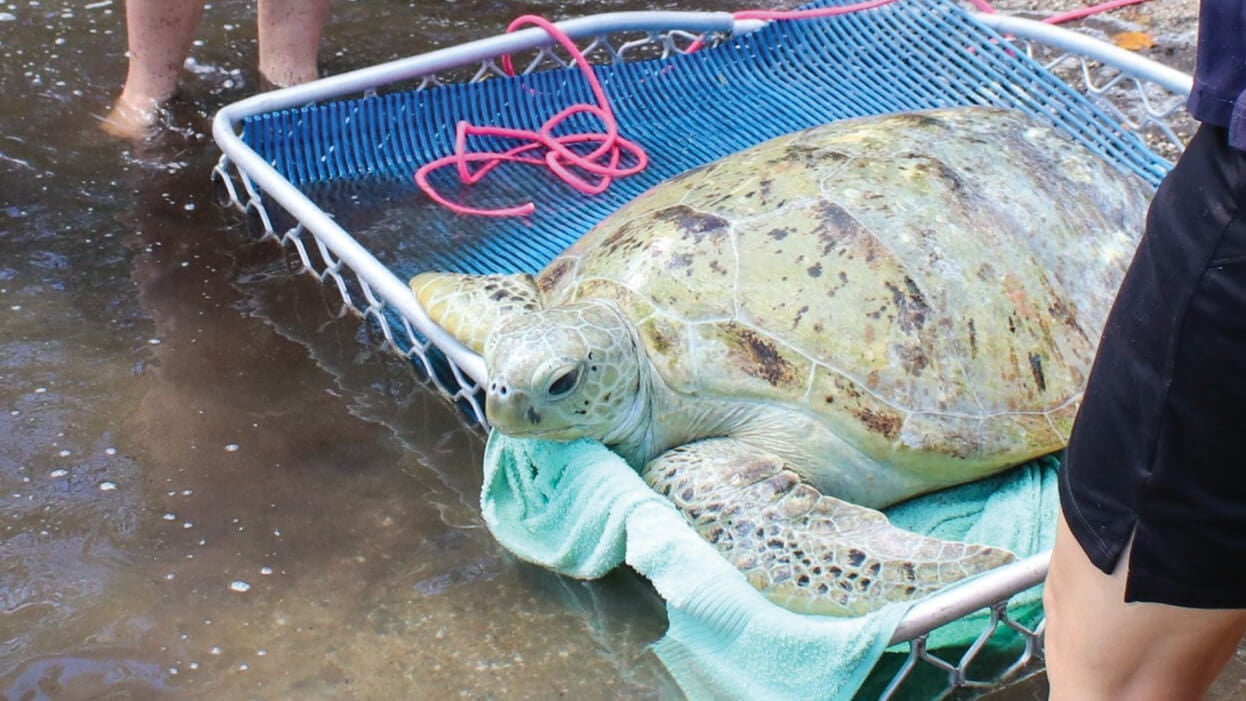A guide to developing life skills for people with disability
We outline critical life skills that people with disability should focus on learning and the nurturing role that carers can play in helping a loved one to develop them.
Life skills are central to our existence.
They help to foster connection and independence and lead to a more fulfilling life.
For people with disability, though, learning and developing life skills can be challenging.
And where do you even start?
In this article, we delve into the most important life skills adults with disability can cultivate – coupled with handy tips on how carers can help their loved ones to advance these critical abilities.
For easy navigation, we have divided life skills into the following categories:
- Health
- Shopping
- Household activities
- Hobbies and sport
- Community
- Relationships
- Employment and financials

Health
Leading a healthy lifestyle is integral to quality of life, and there are various skills that can enhance this position. Here are some of them:
Maintaining personal hygiene
Personal appearance and hygiene can help to boost confidence, particularly in social situations.
In fact, looking and smelling good often nurtures a sense of personal pride. It can help your loved one to feel more accepted.
The key to maintaining a healthy personal hygiene level centres around habit.
Daily routines such as showering, brushing teeth, using deodorant, dressing and combing hair may seem simple, but they can significantly improve personal hygiene, and therefore confidence.
A great way to support people with disability to embrace these habits is by modelling the behaviours. Consider involving yourself in these routines with your loved one.
Eating healthily
Following a healthy diet has several important benefits.
For starters, eating well helps us maintain a healthy weight, which can reduce the risk of illness or disease.
Psychologically, healthy eating can make an individual feel more confident about their appearance, and that can positively impact the way they interact with others.
A positive starting point to adopt a healthy diet and eating routine for people with disability is to take a cooking class.
This will help to create an understanding of what foods go together to create a tasty meal. Plus, developing cooking skills may even inspire a new hobby.
The dedicated team at our popular Learning and Lifestyle hubs can create personalised healthy living plans for you.

Practising sexual health
People with disability can have rewarding sexual relationships, but to do so they may need additional support and information.
Focusing on basic sexual health principles is a solid starting point. You can have a positive influence by helping your loved ones to:
- Understand and believe that they can have a fulfilling sex life
- Recognise that a disability might hinder sexual activity, especially if it is a physical disability
- Seek information about what is and is not appropriate from a social and legal perspective when it comes to sexual activity
Also, educate your loved one about the potential implications of sexual activity, such as pregnancy, Sexually Transmitted Diseases (STDs) and emotional trauma.
The Victorian Government’s Better Health Channel is a great resource for further information on this topic.
Exercising
We all have different ability levels when it comes to exercise. The key is progression.
Daily exercise can start with something as simple as a walk to the shops, or arm raises.
Small habits like these can boost energy levels and over time will likely improve body image, strength, and well-being.
To make sure your loved one has the most appropriate exercise program for their ability, contact an occupational therapist or support worker, who can help you create a plan.

Shopping
Shopping is an excellent platform for people with disability to interact within their community and improve communication and social skills.
It is also a great outlet for learning important life skills, such as money handling.
As a bonus, you can combine shopping with exercise, accompanying loved ones on a walk to the shops or to the nearest bus or train station.

Household activities
Washing, ironing, cleaning and gardening are among skills that your loved one can start developing around the home.
Much like other skills mentioned within this article, a clear benefit is the growth in confidence that often arises from new learnings. This confidence will be invaluable when loved ones seek to embrace other areas of development.
Plus, they may genuinely enjoy participating in some of these household tasks.

Hobbies and sport
Hobbies are a huge part of a fulfilled lifestyle and something any adult should partake in.
Ask a loved one what they are most passionate about and encourage them to focus on these activities.
Sport is a particularly positive avenue for creating friendships, elevating communication skills and staying fit and healthy.
But if your loved one is not the sporty type, do not stress. There are loads of other hobbies they can participate in.
Looking for individualised support to help you participate in your favourite hobbies, sports and other activities? Learn more here.

Community
Being involved in the local community fosters pride and a sense of belonging.
And the more someone interacts and engages with their local community, the easier and more rewarding it becomes.
Here are a few areas that your loved one can focus on, to develop their life skills:
Using public transport
Using public transport can provide a life skills boost, encouraging independence and interaction with others.
Initially, a loved one might feel uncomfortable taking a bus or train, or need other support, so consider joining them to share the experience.
Once they are familiar with the transport system, it will free them up to do more of the things they love, without the help of others.
Alternatively, take advantage of our innovative Virtual Reality (VR) learning supports.
These supports leverage the immersive technology to help people with disability to develop skills in a safe and engaging environment. This includes public transport fundamentals.
Road safety awareness
With increased independence comes a greater need for awareness, and awareness is vital around roads.
The need for safety applies whether a person with disability is a pedestrian or a road user.
Again, our VR learning supports are a fantastic outlet for developing crucial road safety awareness.
Eating at restaurants
Dining out is a fun experience, but for some people with disability it can be daunting.
The thought of communicating with wait staff, explaining an order and paying the bill requires the execution of many crucial life skills. As a combination, these elements can create an anxiety inducing scenario.
Repetition is the key to building any skill. The more you go out for a meal or snack with your loved one and develop these life skills, the more comfortable they will be in these situations.

Relationships
The skills required to develop meaningful relationships – whether it is with a support worker, carer or intimate partner – are diverse and challenging.
But taking the time to invest in the life skills required to build meaningful relationships reaps rewards.
We have identified three key areas of development to focus on:
Social interactions
Relationships begin with social interactions, and the first impression we make is often a lasting one.
To effectively engage in social interactions with confidence, there are basic skills that you can help people with disability to develop. They include:
- When meeting someone for the first time, encourage your loved one to start positively by introducing themselves with a firm handshake or welcome
- Couple that handshake with an appropriate amount of eye contact, and they will quickly gain the respect of the person they are meeting
- Help your loved one to understand the concept of personal space and what is and is not acceptable in a social situation
- Teach and practise common courtesy, such as opening the door for someone or waiting in line for a movie ticket behind others
Communication
Once the first impression is out of the way in a social situation, the relationship moves on to communication – both verbally and physically.
Perhaps the hardest communication skill to develop is appreciating just how much body language contributes to the meaning of a conversation.
Learning the skills associated with effective communication can be a lifetime journey for any adult, so be patient and celebrate small wins with your loved one.
Making friends
As people with disability become more attuned to social interactions and communicating with others, they are likely to develop friendships.
The skill of making friends centres around respecting other’s feelings, finding common interests and maintaining contact when they are not around. You can break these elements up into little objectives or daily habits for your loved one.
For example, they may get into the habit of calling a friend every Sunday at the same time. This small gesture will quickly turn into a habit, and one that improves their quality of life.
It helps to encourage these rituals where possible.
Looking to improve your relationship skills and make new friends? Our Learning and Lifestyle hubs are supportive environments that help to make this happen.

Employment and financials
Employment does not just enable us to earn a living – it empowers us to contribute to society.
And people with disability share a desire to contribute just like anyone else.
As the largest employer of adults with disability in Australia, Endeavour Foundation intimately understands that need.
We find employment opportunities for people with disability that focus on their strengths and capabilities, and help individuals develop as a person to fulfill their potential.
This supported employment pathway also helps develop life skills that include:
- Preparing a resume
- Conducting an interview
- Handling money
- Budgeting
- Workplace interaction
- Health and safety practices
- Teamwork
- Customer service
Offering budgeting and other finance-related modules and support, our Learning and Lifestyle hubs are ideal places to improve your financial skills.

Expert help is on hand
Learning and developing life skills creates a more rewarding and independent lifestyle for people with disability – as it does for anyone.
At Endeavour Foundation, we are committed to helping adults with disability to learn and develop life skills that support their journey towards a more independent lifestyle.
This can be achieved via our various employment, education, independent living and community engagement supports and services.
Are you interested in finding out more? Contact Endeavour Foundation today.
Enquire


